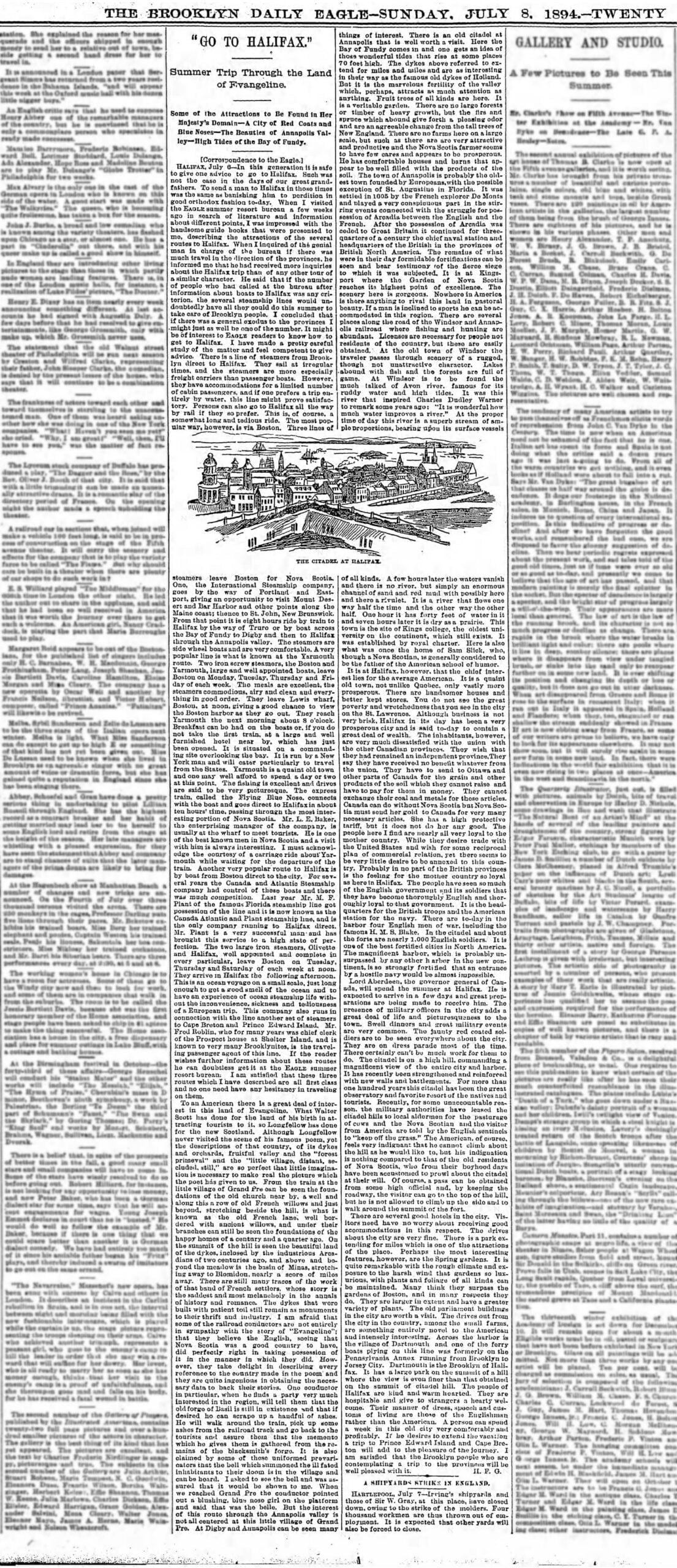An article of note for the information it provides of the Dartmouth Ferry Commission’s first external ferry purchase, the Annex. It’s full of interesting observations.
“In this generation it is safe to give one advice to go to Halifax. Such was not the case in the days of our great grandfathers. To send a man to Halifax in those times was the same as banishing him to perdition in good orthodox fashion today.”
“There is a line of steamers from Brooklyn direct to Halifax… Persons can also go to Halifax all the way by rail if they so prefer. This is, of course, a somewhat long and tedious ride. The most popular way, however, is via Boston… The express train, called the Flying Blue Nose, connects with the boat (in Yarmouth) and goes direct to Halifax in about ten hours time… Another very popular route to Halifax is by boat from Boston direct to the city.”
“(Halifax) is a quaint old town, not unlike Quebec, only vastly more prosperous. There are handsomer houses and better kept stores. You do not see the great poverty and wretchedness that you see in the city on the St. Lawrence. Although business is not very brisk, Halifax in its day has been a very prosperous city and is said today to contain a great deal of wealth. The inhabitants, however, are very dissatisfied with the union with the other Canadian provinces. They wish that they had remained an independent province. They say they have received no benefit whatever from the union. They have to send to Ottawa and other parts of Canada for the grain and other products of the soil they cannot raise and have to pay for them in money. They cannot exchange their coal and metals for those articles. Canada can do with out Nova Scotia, but Nova Scotia must send her gold to Canada for very many necessary articles. She has a high protective tariff, but it does not do her any good. The people here I find are nearly all very loyal to the mother country. While they desire trade with the United States, and wish for some reciprocal plan of commercial relation, yet there seems to be very little desire to be annexed to this country. Probably in no part of the British Provinces is the feeling for the mother country so loyal than here in Halifax.”
“Recently, for some unaccountable reason, the military authorities have leased the citadel hills to local alderman for the pasturage of cows and the Nova Scotian and the visitor from America are told by the English sentinels to “keep off the grass.” The American, of course, feels very indignant that he cannot climb about the hill as he would like to, but his indignation is nothing compared to that of the old residents of Nova Scotia, who from their boyhood days have been accustomed to prowl about the Citadel at their will. Of course, a pass can be obtained from some high official and, by keeping the roadway, the visitor can go to the top of the hill, but he is not allowed to climb up the side and to walk around the summit of the fort.”
“Across the harbor is the village of Dartmouth and one of the ferryboats plying on this line was formerly on the Pennsylvania Annex running from Brooklyn to Jersey City. Dartmouth is the Brooklyn of Halifax. It has a large park on the summit of a hill where the view is even finer than that obtained on the summit of citadel hill.”

H.F.G. “Go to Halifax”. The Brooklyn Daily Eagle [Brooklyn], Sunday, 08 Jul 1894. p.5 https://bklyn.newspapers.com/image/50346344

This is the paddle-wheeler “Annex 2” built in 1878 at New Baltimore, N. Y., and one of the six boats of the Jersey City-Brooklyn ferry system. She was bought in New York by John White and Byron A. Weston representing the Citizens’ Committee of Dartmouth to run as a competitor to the Ferry Company. The boat cost $25,000 but in the months subsequent to her purchase a considerable sum had to be spent on repairs. The “Annex” was re-named the “Halifax”, and did duty until 1909 when she was destroyed by fire at her dock in Dartmouth.
